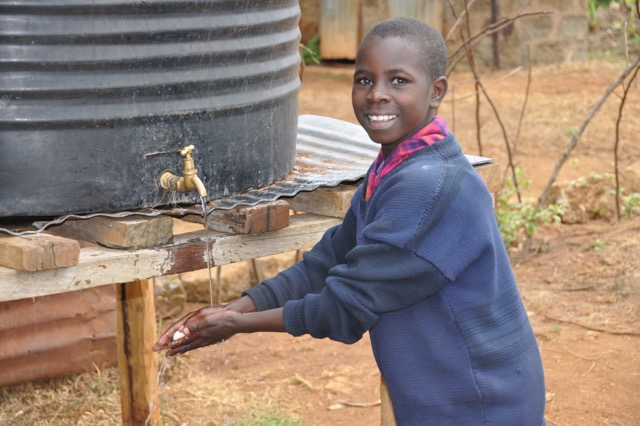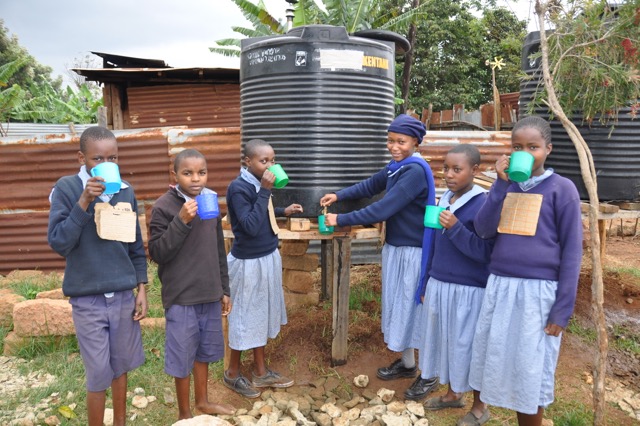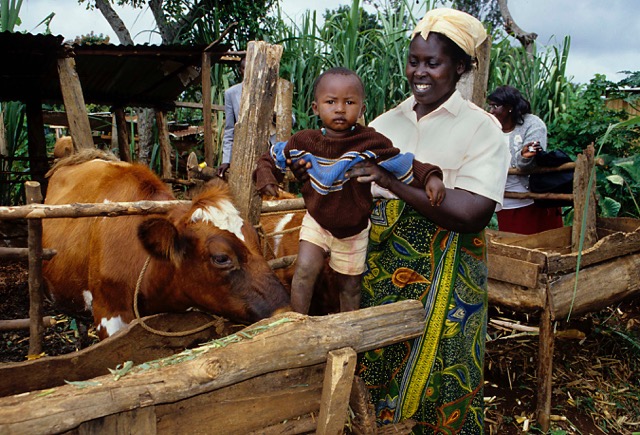Late last fall, I received a phone call from Dr. Brad Bennett, the current President of the Wilderness Medical Society (WMS), asking if I would chair a two-day conference on global health to be held immediately before the annual summer meeting in Breckenridge, Colorado in July 2015. It is Brad's vision to jump start global health again, with a new committee that will focus on establishing direct liaison between the WMS and active global health programs so the Society's members can get involved at these location for any duration they desire.

Brad and his wife, Kathie, had come with me to Kenya in 2012 where I have been involved in a very successful, comprehensive rural health care program since the year 2000. During that trip, we had discussed the possibility of trying to reform a WMS committee on global health. The Society has had such a committee in the past, but in recent years the focus has been on disaster and humanitarian assistance based on world events and natural disasters, although many of our WMS members have ongoing involvement in global health projects in the developing world.
That WMS Global Health Pre-conference is now a reality and will be held on July 10th and July 11th immediately preceding the summer meeting in Breckenridge, CO. You can review the preconference agenda here. At the conference, six faculty will share their experiences working in the developing world. Five pre-conference faculty (see below) have been involved in global health for at least 20 years and two of the faculty have been involved for over 30 years. The conference will focus on advances in global health in the 21st century and how the practice of global health has changed in the last 15 years. Also, I am leading a Global Health Group Session scheduled during the WMS main conference at 1:00-2:30 PM on July 12th. The objectives of this Group Session to recruit new committee members, hear about participation in current global health programs, e.g., Haiti, Africa, and Nepal, etc., and seek out interest among the attendees for a three-day global health conference.
The conference will serve as a platform to network with others in the global health field, as well as to share ideas on successful and effective programs now in place in the developing world. The conference will also serve to offer portals through which those new to global health can begin to actively participate, as well as to allow them to meet and possibly be mentored by members who have been involved for many years. The field of global health can be hard to break into; knowing influential people who have been involved for many years and who have made many important contacts over those years can be extremely useful for those new to the field. It is Brad's objective to have this conference serve as a catalyst for an ongoing dialogue within the Society and the Wilderness & Environmental Medicine journal on issues in global health. Furthermore, based on membership support and enthusiasm, the future plan is a "stand alone" three-day global health conference sponsored by the Society in the Napa/Sonoma California region.

Some of you may be asking the legitimate question, "How does 21st century global health differ from that of the 20th century?" There are many differences, but two are extremely important and will be discussed in detail at the conference. The first is the movement away from one-dimensional interventions that characterized many of the health projects in the last century towards a multi-dimensional approach. Improving the health of populations in resource poor settings is a complex problem and one-dimensional interventions do not result in sustainable improvements in health care numbers for those populations. The data from the last century is very clear on this point and it also makes intuitive sense.
Another major problem that has plagued the field of global health over the last 50 years is the short attention span of both our general news media and our medical news media. In other words, we have tended to focus on "foreground issues" and have largely ignored the much more significant "background issues" that affect the overall health of populations living in resource poor settings. The recent Ebola epidemic is an example. Earlier this year the outbreak, which affected tens of millions of West Africans, was on the front page of every newspaper, but the background health issues which were affecting hundreds of millions of Africans, such has contaminated water, lack of basic hygiene, and access to basic health services were ignored. Today, no mention of Ebola can even be found in our country's major newspapers. Ebola is no longer seen as a threat to the western world.

As I write this, the earthquake in Nepal has just occurred and the news media is filled with photos of the destruction. Thousands have died, trekkers, climbers, and sherpas have been killed at Everest Base Camp, damage to Everest ER, and the great Durbar Squares of the Katmandu Valley have been largely destroyed. Yet when you read this, it is unlikely that your morning paper will have any news of Nepal. The news media will have moved on to other foreground events, and the Nepalese will be left to mourn their dead and pick up the pieces as best they can.
Many of us have traveled and trekked extensively in Nepal and our hearts go out to the Nepalese. We owe them a lot. Over the years, we have taken most of the credit for our exploits in their mountains and they have taken most of the risk, carrying our equipment over the treacherous ice fall. Many have died in the process. Our membership will respond and many will donate substantial amounts of their time and money to help and they will discuss their relief efforts at this summer's meeting. It will be very telling in what will be said at Breckenridge conference this summer. In the context of 20th century medicine, we will talk about the extent of disaster and what we did to help in the past tense. In the context of 21st century global health, we will talk about what we did but will focus on what ongoing efforts are being undertaken to help the Nepalese improve their basic health infrastructure so that they will be better prepared to withstand a similar disaster in the future. We may not be able to affect the health care infrastructure of all of Nepal but we can certainly help to improve the situation in the Everest area, the place where so many of us have traveled and made friends.
In summary, the modern global health goes beyond disaster relief and deals with the every day lack of health facilities and infrastructure that result in most of the significant morbidity and mortality in billions of people who live in the resource poor settings of our planet. It is not that we will ignore disaster relief, but rather add to it the willingness to look at and attempt to change the bigger picture. In our new century, we need to avoid being trapped in a cycle of "smoke jumping" as we focus only on foreground events and find ourselves moving from a humanitarian disaster in the Sudan, to a hurricane in Haiti, to an Ebola epidemic in West Africa, and on to an earthquake in Nepal. This will not be easy. It is always easier to deal with an acute problem for a few months than to dig in and focus on long term solutions. The field of global health has evolved and the easiest path is no longer good enough. During our conference, we will take on this difficult issue and look at what has worked and what really can be done to affect the bigger picture.
The pre-conference faculty offers a great perspective on the problems noted above.

Joe Serra, MD - a long time member of the WMS, has spent over 40 years working on orthopedic problems in the developing world. He has focused on getting polio victims back on their feet and worked to train hospital technicians in Malawi on how to make their own inexpensive and effective orthopedic appliances. He has also worked extensively with Rotary International on their polio program and is currently involved in a project in Guatemala where wheel chairs for disabled children are made by workers who are themselves disabled.

Jim Gude, MD - for years one of the main faculty in the University of California, San Francisco, School of Medicine's family practice program. An expert pulmonologist and clinician, he was the go to person for the residents when they were dealing with a difficult clinical problem. He has now developed a cutting edge program for telemedicine for hospitals in the United States and has extended the program to over 20 countries around the world. His program offers health care providers in these regions free access to a select panel of medial and surgical specialists via telemedicine.

Tim Jagatic, MD worked extensively with Doctors Without Borders both in the Sudan during the humanitarian crisis in Darfur and more recently in West Africa with the Ebola outbreak. He has also worked on HIV/Aids in the Democratic Republic of the Congo.

Bill Forgey, MD - a past president of the WMS, has for many years offered a training program for US medical students in Haiti. The program focuses on exposing the students to the realities of practicing medicine in a resource poor setting as well as improving their clinical skills. He is presently working on creating a sustainable clinic that will function even when his medical students are not in country.

Geoff Tabin, MD - needs little introduction to members of the WMS as he has spoken at many conferences in the past and is well known for his innovative programs for delivering cost effective cataract surgery to the world's poor especially in Africa and Asia.